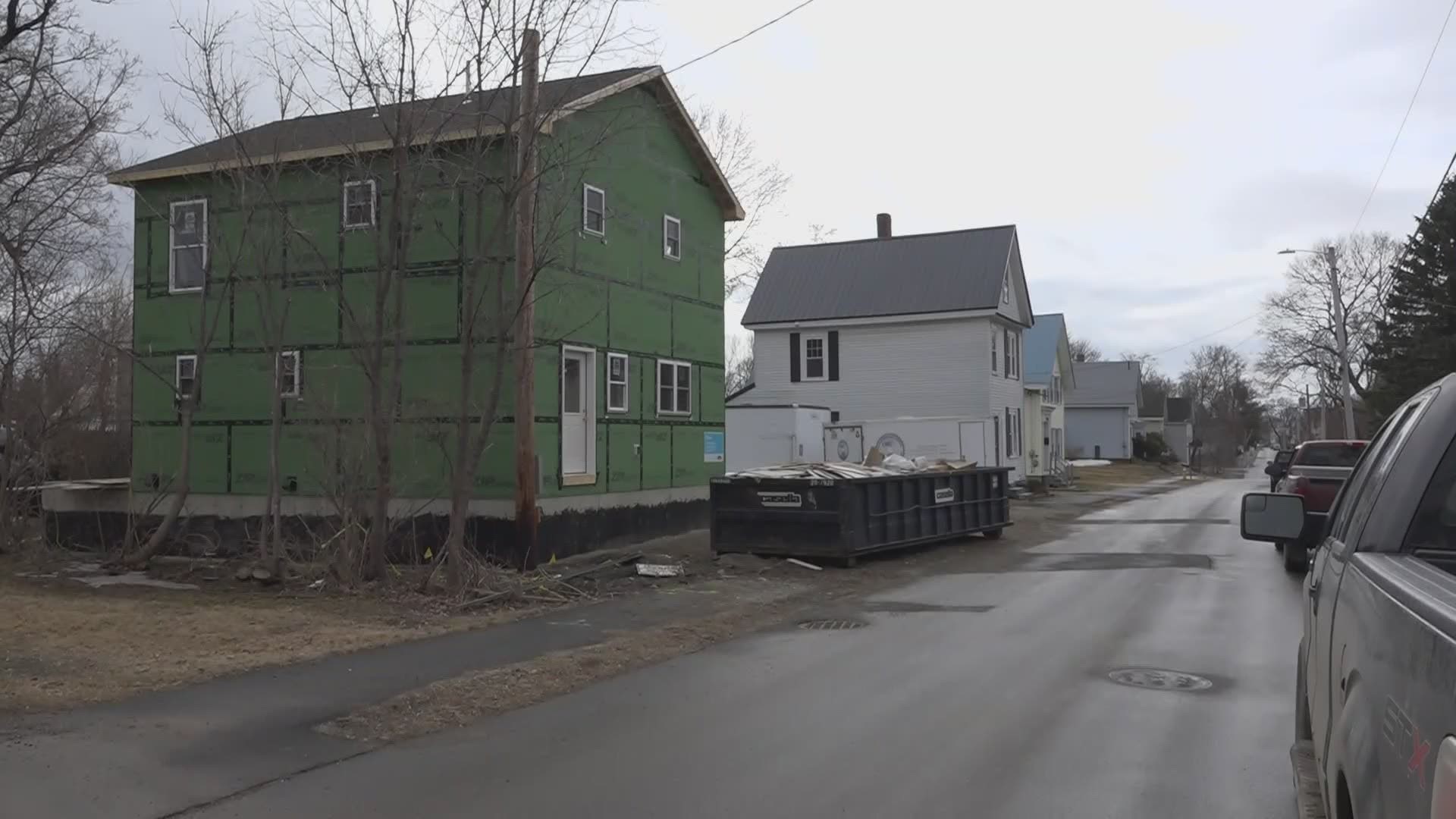BANGOR, Maine — Affordable housing options are a necessity in Maine. Mother of five Allison Parker can attest, based on life experience. She and her five children, ranging from three to 20 years old, have been living in the same Bangor apartment for 13 years after she moved there from Lubec to get an education and break the cycle of poverty. Now, she is on her way to becoming a first-time homeowner, thanks to a nonprofit housing organization, a sizeable grant, and a group of local college students.
Parker has been involved with Habitat for Humanity of Greater Bangor for some time. She says in the past, she had tried applying for its affordable mortgage program, but the projects happening were always too small for the size of her family. About a year ago, she received a call about a new, four-bedroom location going up on Pearl Street. She applied again, and from there, the process began.
"For me right now, it's kind of surreal," Parker smiled, noting that the down payment for a home has always been the biggest barrier for her. "It's starting to become more of a reality -- the more I see the house coming together and the more I'm on-site, kind of being able to help out."
Along with purchasing this home, Parker and her family will also put in 200 hours of sweat equity to help with some construction -- tasks they are able to do easily, like installing insulation and painting rooms. Parker says her children have already decided where they want their beds to go -- an indication of just how excited everyone really is.
"I really don't think it's going to feel entirely real until the day that I sign the paperwork and we exchange the keys," Parker expressed.
This project may not have been possible without a $100,000 grant from the J.M. Huber Corporation, helping to pay for part of the building's construction. Rebecca Kirk, executive director of Habitat for Humanity of Greater Bangor, says they applied for the grant last summer and were surprised to found out they received it in November.
"We could not be more relieved and excited and grateful for this type of impact," Kirk said excitedly, noting the goal of Habitat for Humanity of Greater Bangor is to help families transition from unstable financial situations.
The money comes at a convenient time. J.M. Huber has been a long-time partner to the nonprofit, providing materials and tools -- but the coronavirus pandemic has made Habitat for Humanity of Greater Bangor's work much more difficult. Kirk says the cost of construction has risen "dramatically". They also still aren't allowed to have volunteers on-site as usual, so they have to hire and pay contractors.
"What we were able to build a house for cost-wise pre-COVID is not the reality that we're in right now," Kirk said.
Keeping these projects going is important to house families -- but also to help local college students with their education. Parker's home is the fifth house Eastern Maine Community College building construction students have helped to build with Habitat for Humanity of Greater Bangor. Instructor Troy Blodgett says students learn techniques at the school and then apply them at the home. He says there is a huge need for builders in the real world -- for the past 10 years, they have placed students with jobs "easily".
"Instead of it just being a house like we always look at it, we get to see it actually become a home," Blodgett said.
His students are thankful for the hands-on learning opportunity, especially since it's for a good cause.
"Being able to build a house for Habitat is a very special thing," Tyson Gray, a student from Bucksport, said.
"It has been really cool to be a part of it and to know that it's going to go to a deserving family," Matt St. Germain, a student from Ellsworth, added.
Parker and her family are expected to be able to move into their new home this summer. Habitat for Humanity of Greater Bangor says it's always looking for land to build on -- so if you have leads, you're encouraged to call 207-942-8977 to speak with Kirk.
To qualify for Habitat for Humanity of Greater Bangor, you must make between 30 and 80 percent of the median income in the area. You also need to have a stable source of income and a solid credit history. You can visit the nonprofit's website to learn more.

